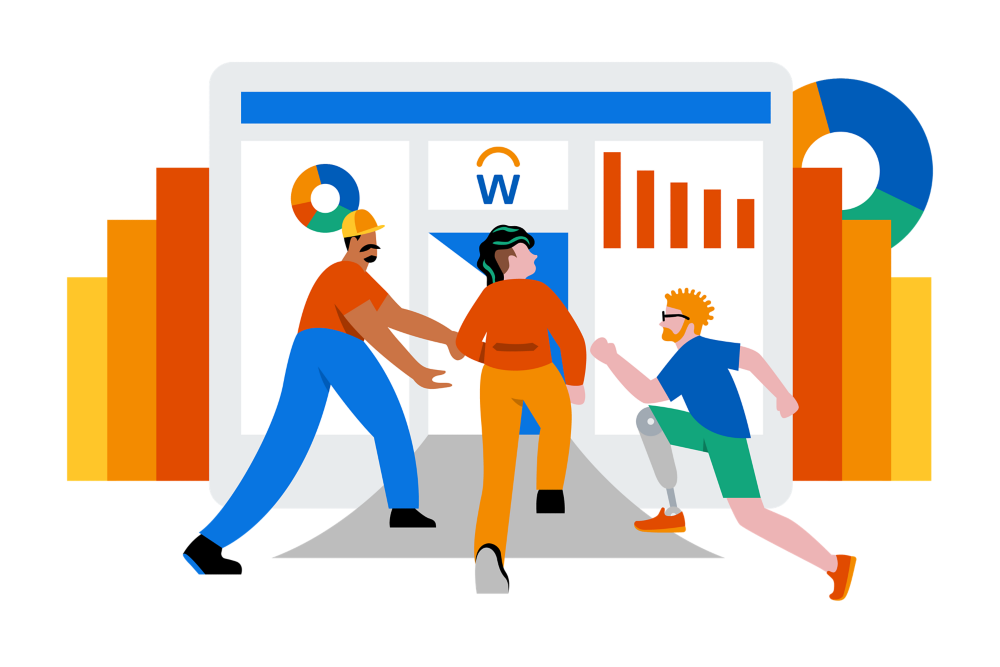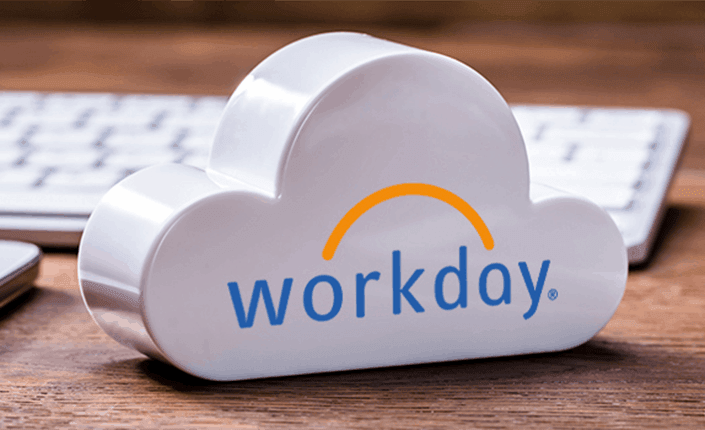How to Elevate Your Workforce Management Strategy with Workday’s Integrated Platform?
In the dynamic landscape of business in the present time, an effective workforce management strategy is essential for driving productivity, enhancing engagement amongst employees, and finally achieving the desired organizational success. As business organizations grow and evolve, the requirement for an integrated and comprehensive platform becomes very important for streamlining processes, fostering collaboration and making some strategic data-driven decisions.
Workday is a leading and highly functional cloud-based platform that offers a compelling solution that can elevate workforce management strategy to newer heights. Here we will explore how Workday’s integrated platform can transform your overall approach while using workforce management and drive some significant growth. Also, we will see how Workday training makes it easier for the employees of the business organizations.
The Foundation of Workforce Management
The entire approach of Workforce management majorly encompasses a wide range of activities, including acquiring talent, developing employees, planning compensation & more. In the past decade, the traditional modes of employee management were followed, and most of the processes utilized disparate systems, leading to certain inefficiencies and limited access to workforce metrics and data silos. With the integrated platform of Workday, several organizations can unify all of these processes under one umbrella, and this fosters seamless communication & collaboration across several departments.
1. Unified Data and Insights
The integrated platform of Workday empowers organizations to consolidate employee data, ensuring consistency and accuracy. With all the organized information about your workforce stored in one centralized location, HR professionals and managers can access the insights in real time to make the most informed decisions. This particular data-driven approach also allows the organizations for more effective workforce planning, identifying skill gaps and optimizing the allocation of resources. The organized Workday training helps employees use Workday more effectively and optimally.
2. Streamlined Recruitment and On-boarding
Following an effective procedure of talent acquisition and onboarding is pivotal to building the most vital workforce. Workday’s platform significantly streamlines the recruitment process by providing tools for job posting, tracking candidates & scheduling interviews. Once a candidate is hired, the process of onboarding can very seamlessly be managed, ensuring a very smooth transition into the organization. The new employees in an organization using Workday can complete the necessary paperwork, review policies & access the training materials – all within the platform of Workday.
3. Management of Employees’ Performance & Development of Employees
The platform of Workday transforms the way performance management is conducted. The traditional annual reviews are being replaced by the procedure of seeking perpetual feedback and coaching. This allows the employees and managers to track the progress that too in real-time. The development plans and resources of learning can be easily integrated and aligned for the growth of the employees and in line to achieve the objectives of a concerned business. This specific approach fosters a great culture of ongoing collaboration and improvement.
Leveraging Workday’s Integrated Platform
1. Advanced Analytics & Reporting
One of the best features of Workday’s integrated platform is that it offers robust analytics and capabilities reporting. HR and management teams also enjoy the flexibility of generating custom reports, visualizations, and dashboards to gain insights into workforce trends, compensation analysis, turnover rates, and more. All of these data-driven insights enable the teams to make informed decision-making and empower the organizations in proactively addressing several challenges in the workplace.
2. Scalability and Flexibility
Workday’s integrated platform offers the best scalability and flexibility. As your organizations evolve, the Workday platform can seamlessly adapt to the various changing needs, whether expanding to several new markets, introducing several new roles, or undergoing particular organizational restructuring. Workday provides the proper agility accommodating specific changes without causing any disruption to the operations.
3. Self-Service for the Employees
Empowerment is the cornerstone of effective management of the workforce. The self-service features of Workday help the employees manage all their personal information, update profiles, and access essential documents any time independently during their course of employment. This not only reduces the overall administrative burdens but also at the same time enhances employee engagement by providing a sense of ownership over all their necessary data.
4. Seamless integration
The integrated platform of Workday is not limited to workforce management alone, but this also has the capability of integrating with several other critical business systems like supply chain, finance, and customer relationship management. This integration procedure ensures a very consistent and accurate sharing of data across various departments, enabling cross-functional collaboration and driving the desired operational efficiency.
Implementation of Best Practices
In order to make a transition to Workday’s integrated platform, it usually requires a very strategic approach toward proper implementation. Here are a few best practices that you should necessarily consider:
1. Defining the Objectives Clearly
You can initiate by defining the management objectives of your workforce. Whether this is improving the processes of recruitment, enhancing the process of performance management, or ensuring compliance, strategizing clear goals will surely guide the implementation procedure.
2. Engaging the Stakeholders
You have the option of involving the key stakeholders from HR, IT, as well as another relevant department early in the implementation procedure. Their input is essential that the platform very well aligns with the needs of the business and at the same time, addresses all the pain points.
3. Migration of Data and Cleansing
The smooth migration of data is critical to achieving the desired success during implementation. You should ensure that the data is migrated accurately and cleansed before the platform finally goes live to prevent certain data discrepancies and ensure an overall seamless transition.
4. Training and Change Management
Successful implementation of Workday requires proper Workday training to be given to the concerned organization’s employees. You need to equip your workforce with all the necessary skills for practical usage of the new platform and manage the obvious cultural shift associated with adopting the new processes.
5. Continual Improvement
The integrated platform of Workday is strategically designed to evolve with your organization. You can regularly review as well as assess its overall performance, gather feedback from the users, and make certain necessary adjustments for maximizing its overall impact.
Conclusion
Elevating the strategy of workforce management usually requires a very forward-thinking approach that can integrate processes, foster collaboration, and leverage various data-driven insights. Workday HCM’s integrated platforms usually offer a wide comprehensive solution that majorly empowers the concerned organizations in streamlining the processes of talent acquisition, employee performance management and other critical HR functions.
By unifying all of these processes under a single cloud-based platform, businesses can very well enhance their overall productivity, drive sustainable growth of the organization, and engage employees in the dynamic and ever-changing business landscape. You can embrace the massive power of Workday and unlock the enormous potential of your workforce management strategy in the present time.


4 thoughts on “How to Elevate Your Workforce Management Strategy with Workday’s Integrated Platform?”